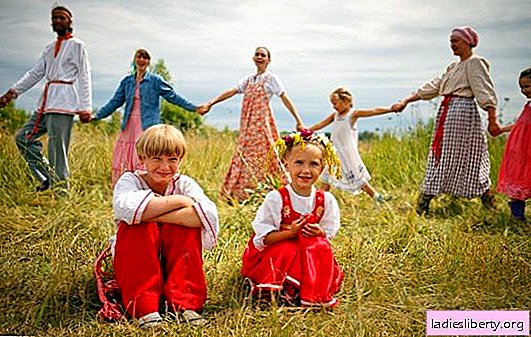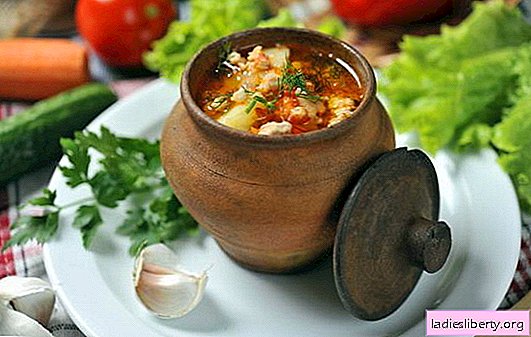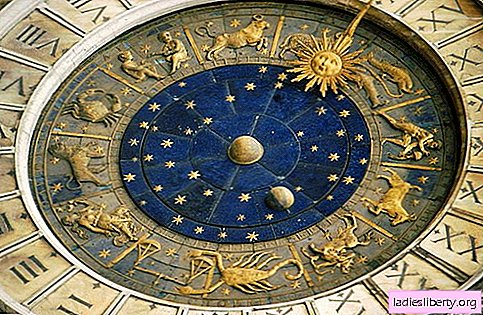
Different peoples of the world have a name - a special ritual associated with a large number of signs, superstitions. The name received by the child at birth affects his fate, life, sometimes even his character, relationships with other people and many factors. Since ancient times, this issue was taken seriously. It is interesting that many of the signs have survived to our days, are observed and honored. Let's see what rituals of a name and purpose existed among different nations, which of them are still observed.
The rituals of the naming of the ancient Slavs
For the Slavs, the process of obtaining a real adult name is quite interesting. After birth, the baby was given a nickname, and the children were called "child". Of course, the children had the names given by the parents at birth, only they were not considered real. This was observed until entry into the age of twelve years. They treated boys and girls the same way, did not separate them until this age was reached. This age-related initiation took place after twelve years. Then the child already received a real adult name.
The ancient Slavs took the name very seriously, believed that it would determine fate, life's journey. Also, the name acted as a kind of amulet, protected from any evil. Not for nothing that many sorcerers should know the name of a person to inflict damage. It is for this reason that the Slavs had secret names. Now these echoes have come down to us in the form of names that are given at baptism - they often differ from those that were given to us at birth.
An interesting fact: a mature man, for example, could have up to a dozen names.
How could this happen? First came the first name given to the infant by the parents after birth. Then this name was "forgotten" when the boy was twelve years old. He was washed away with river water during the ritual, the child passed into an adult state and was given a new name. There were also various nicknames.

The rite of naming for the ancient Slavs had many conventions. For example, only a priest, a sorcerer or midwife could conduct a rite, but this was more likely an exception to the rule. The priest introduced the child into a special trance, then joined him in the spirit world. During this spiritual meditation, the priest received knowledge about the true destiny of this child. When a person’s soul comes to our world, she already knows the meaning of her birth. This meaning should be understood by the priest.
Then he gave the child two names: one was common, everyone knew him, the second was known only to the priest and the child himself. Even parents and other relatives were not allowed to know this secret name.
The difference between the well-known and secret name is huge! However, it is not only secrecy. The first, common name, only reminds a person of his life path, determined the main vector. The secret name determined the essence. We can say that the rite of the name was held sacred, revealed fate, purpose. It is known that after reincarnation, the soul does not remember anything about a past life or lives, and the priest, during meditation, opens the curtain, reminds the soul of its true purpose, why it came back to the living world.
Unfortunately, knowledge of secret names has been lost, only echoes of this knowledge remain.
Common names have their own classification, similar to castes. For example, future priests and magi received names that emphasize their wisdom:

Warriors or future riches received such names:

Farmers, hunters, fish and representatives of similar professions and crafts received real names corresponding to their character:

Rites of the ancient Slavs took place in special places that carry a sacred meaning. It could be a grove, a clearing, a temple, a temple. If there were no such places, they used baths, a place near the stove or the threshold of the father’s house.
The day was also special: the celebration of the name or Perunov day.
The Slavs believed that these days were the most successful of the year.
Today, there are no true priests and sorcerers. However, there are communities that observe the traditions of the Slavs, conducting various rituals. There you can get a new name, but it’s important to get rid of the old one, this is one of the main conditions of the ceremony. Before carrying out the ritual of naming, it is necessary to observe the fast for forty days, for nine days the fast is especially strict. Before the ceremony itself, you need to go to the bathhouse or doused with spring water.
Muslim rite of passage

In Islam, the choice of a name for a person is no less important than that of an Orthodox person. Muslims consider the name an inseparable part of man. The name affects the character, life path. Names should be chosen harmonious, beautiful. Quite often the names of the prophets and various saints are used.
The Messenger of Allah said:

Akyka is a special ritual when, after the birth of a child, on the seventh day, his head is shaved, a rite of name is performed, a ram is killed, and solemnly celebrated. For modern Muslims, the rule is respected, the name is given no later than the seventh day after birth. Shaving your head is no longer necessary. However, the meaning of the name has not lost its meaning and importance. There is even the saying of the Prophet Muhammad, who said:

Muslims do not come up with nicknames, as the ancient Slavs did. Yes, and today, a fairly large number of people have nicknames. Muslims believe that a nickname can offend a person. Neither commoners nor children are given it to anyone. If the name received at birth has an unpleasant meaning for a person, is not harmonious, it can be changed.
The Most Highs are instructed to leave behind righteous posterity and the name is the starting point. It is considered that if, for objective reasons, the child did not receive the name within seven days or on the seventh day, it is impossible to delay. The sooner he hears the sacred words, gets the name, the better he will be in the future.
Traditionally, Muslims conduct the rite of naming the house, invite guests, sacrifice a ram. Some Muslims perform a ritual of naming in a mosque or invite an imam home. In this case, special triumph does not occur. A father can also give a name to a child - it all depends on material conditions. It is believed that Allah judges according to intentions, and not external acts. During the ritual, that one. Who gives a name to a child takes him in his arms, covers his face with a palm and says a prayer, while complete silence is observed. Then the child is taken to another room or home, after which you can start the celebration.
Each nation has its own rituals associated with the child getting his own name. We considered only Slavic and Muslim ones to understand - getting a name has always been and will be a sacred, important event that affects the life of a child and helps him in the future.











